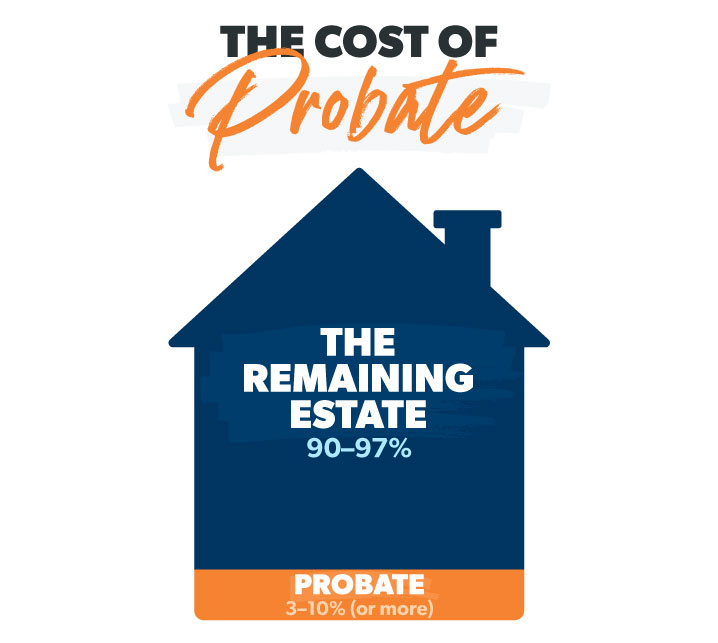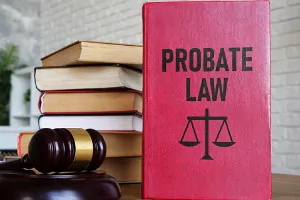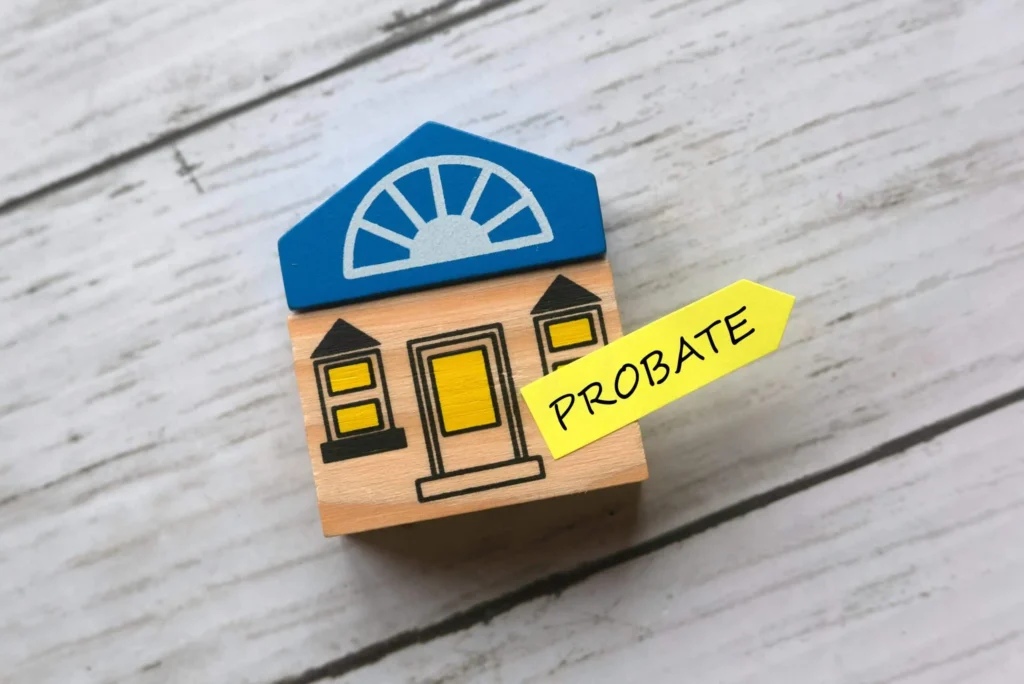When probate is required in Texas, it can be a confusing and emotional time for families. Probate is the legal process of settling a deceased person’s estate, ensuring debts are paid, and assets are distributed according to the will (or state laws if there is no will). But when exactly is probate required in Texas? Let’s explore the top scenarios that necessitate probate and unravel the complexities of this legal process.
What Is Probate, and Why Is It Necessary?
Before diving into the specific situations when probate is required in Texas, it’s essential to understand what probate is and why it’s necessary. Probate serves as a legal safeguard, ensuring the deceased’s wishes are carried out and creditors’ rights are respected. In Texas, probate is handled by specialized probate courts or the county court system, depending on the complexity of the estate.

Why Probate Exists
Probate ensures:
- Debt Settlement: Any outstanding debts or taxes owed by the deceased are paid.
- Asset Distribution: Property and assets are legally transferred to heirs or beneficiaries.
- Legal Clarity: A clear legal framework prevents disputes among heirs and other interested parties.
- Fraud Prevention: It ensures that the estate is protected from potential fraud or unauthorized claims.
Understanding when probate is required in Texas can help families navigate this often-overwhelming process with confidence and clarity.
Top 5 Scenarios When Probate Is Required in Texas
Texas law provides several instances where probate becomes necessary. Below, we’ll break down these scenarios in detail, using real-life examples to help illustrate each case.
1. When There Is No Will (Intestate Estates)
If someone passes away without a valid will, their estate is considered “intestate.” In such cases, probate is often required to appoint an administrator who will manage the estate’s distribution according to Texas’ intestacy laws.
Real-Life Example
Imagine a man named James, who owned a house, a car, and several bank accounts but died without a will. Since no legal document outlined James’ wishes, his family members could not access his assets without probate. The court had to appoint an administrator to oversee the distribution of his property among his surviving relatives based on state law.
Costs in Intestate Cases
Intestate probate cases can often be more expensive because there is no clear guidance on asset distribution. A probate lawyer’s role becomes critical in ensuring all heirs are identified and assets are distributed fairly. This process can cost families anywhere from $2,500 to $10,000, depending on the complexity of the estate and the number of heirs involved. Additional costs may include court filing fees, appraisal fees for assets, and publication costs for notifying potential creditors.
2. When Real Estate Is Involved
Probate is required in Texas when the deceased owns real estate titled solely in their name, especially if there is no joint ownership or transfer-on-death designation.
Real-Life Example
Consider Sarah, who owned a rental property in Austin, Texas. Upon her death, the property’s title remained in her name. Since the title wasn’t transferred to a beneficiary through a will or other legal mechanism, her heirs needed probate to transfer ownership and sell or manage the property.
Costs of Real Estate Probate
Probate for real estate often involves additional expenses, including appraisals, legal fees, and court costs. These costs can range from $3,000 to $15,000 or more, especially if there are disputes among heirs or complications with property titles. Additionally, real estate might require title searches or resolution of liens, which can further increase costs.

3. When the Estate Includes Significant Assets Without Beneficiary Designations
In Texas, certain assets like bank accounts, retirement funds, or life insurance policies allow beneficiaries to be named directly. If these designations are missing, probate may be required to determine who inherits the assets.
Real-Life Example
David’s estate included a large investment account but lacked a named beneficiary. His heirs were unable to access the account without court approval. Probate was necessary to distribute the funds appropriately.
Legal Fees for Asset-Based Probate
For estates with significant assets but no clear beneficiaries, probate lawyers often charge a percentage of the estate’s value or hourly fees. Expect costs between $2,000 and $8,000 for such cases, depending on the estate’s complexity. In addition to legal fees, banks or financial institutions might charge administrative fees for transferring assets post-probate.
4. When There Are Disputes Among Heirs or Beneficiaries
Disputes over the validity of a will or disagreements among heirs can trigger the need for probate. The court intervenes to resolve conflicts and ensure a fair distribution of the estate.
Real-Life Example
After Maria’s death, her children disagreed over the terms of her will, accusing each other of undue influence. The court had to step in to mediate and ensure the legal process was followed. This scenario required extensive probate proceedings.
Costs of Contested Probate
Contested probate cases are among the most expensive, with legal fees often reaching $10,000 to $50,000 or more. The complexity of these disputes often requires extensive court involvement, mediation, and expert testimony, driving up costs significantly. Other costs may include hiring forensic accountants, private investigators, or mediators to address specific issues.
5. When Assets Need Legal Protection
Sometimes, probate is necessary to protect the estate’s assets, especially when there’s a risk of fraud, theft, or mismanagement. The court can appoint an executor or administrator to safeguard the assets until they’re properly distributed.
Real-Life Example
John passed away, leaving behind a significant art collection. His family worried about potential theft or disputes over ownership. Probate allowed the court to appoint a trusted executor to manage and distribute the collection appropriately.
Additional Costs for Asset Protection
In cases where asset protection is a concern, probate lawyers may charge higher fees to account for the added responsibilities. Families can expect costs to range from $5,000 to $20,000, depending on the estate’s value and the level of protection required. In some cases, bonding fees for the executor may also apply to ensure the estate is managed responsibly.
Simplified Probate Options in Texas
While probate is often unavoidable, Texas offers simplified procedures for smaller or less complex estates. These options can save time and reduce costs for families navigating the probate process.
Small Estate Affidavit
If the total value of the estate (excluding real estate) is under $75,000 and there is no will, a small estate affidavit can often replace formal probate. This streamlined process requires filing paperwork with the court but avoids lengthy legal proceedings.
Costs of Small Estate Affidavits
The cost of filing a small estate affidavit is significantly lower, often ranging between $300 and $1,500, depending on whether a lawyer’s assistance is needed. Additional costs may include notarization fees or publication fees for creditor notifications.
Independent Administration
Texas allows for independent administration, a simplified probate process where the court’s involvement is minimal. If the will specifies independent administration or the heirs agree to it, this option can save time and money.
Financial Advantages of Independent Administration
Independent administration typically costs less than formal probate, with legal fees ranging from $1,500 to $5,000 in most cases. The reduced court involvement makes this option faster and more affordable.
How Much Does a Probate Lawyer Cost in Texas?

When probate is required in Texas, families often wonder about the cost of hiring a probate lawyer. The fees can vary widely based on several factors:
- Hourly Rates: Many probate lawyers charge by the hour, with rates ranging from $150 to $400 per hour.
- Flat Fees: Some attorneys offer flat fees for straightforward cases, typically between $1,500 and $3,000.
- Complex Cases: For contested or highly complex estates, legal fees can escalate significantly.
Factors Influencing Costs
- Estate Size and Complexity: Larger estates with multiple assets require more legal work, increasing costs.
- Disputes Among Heirs: Legal conflicts can prolong probate and drive up attorney fees.
- Court Involvement: Formal probate processes generally cost more than simplified alternatives like small estate affidavits.
- Geographic Location: Probate lawyer fees in urban areas like Dallas or Houston may be higher than in smaller towns.
- Specialized Expertise: Estates involving unique assets, such as businesses or intellectual property, may require specialized legal expertise, which can increase costs.
Average Costs for Probate in Texas
The average cost of probate in Texas ranges from $3,000 for simple cases to $50,000 or more for complex, contested estates. Knowing these costs upfront can help families plan accordingly and avoid surprises. Additional costs, such as executor fees, court filing fees, and appraisal charges, should also be factored into the overall budget.
Tips for Navigating Probate in Texas
If you’re facing a situation where probate is required in Texas, here are some practical tips to make the process smoother:

1. Hire an Experienced Probate Lawyer
An attorney specializing in probate law can guide you through the complexities, ensuring compliance with Texas laws and minimizing delays.
2. Organize Financial Documents
Gather all relevant documents, including the will, bank statements, property deeds, and outstanding bills. This preparation can save time during probate proceedings.
3. Consider Mediation for Disputes
If conflicts arise among heirs, mediation can be a cost-effective way to resolve disputes without prolonged litigation.
4. Explore Simplified Probate Options
For smaller estates, inquire about alternatives like small estate affidavits or independent administration to reduce costs and time.
5. Understand State Laws
Familiarize yourself with Texas probate laws, as they can vary by county. Consulting a local probate attorney can ensure you’re following the correct legal procedures.
6. Communicate Openly with Family Members
Transparent communication among family members can help prevent misunderstandings and reduce the likelihood of disputes.
Final Thoughts: Understanding When Probate Is Required in Texas
Knowing when probate is required in Texas can help families prepare for the legal and emotional challenges of settling an estate. Whether it’s due to the absence of a will, disputes among heirs, or the need to manage significant assets, probate serves as a vital process to ensure fair and lawful resolution.
While the process can seem daunting, understanding your options and seeking professional guidance can make it more manageable. If you’re dealing with a loved one’s estate, don’t hesitate to consult a qualified probate lawyer to navigate this intricate legal terrain. By taking proactive steps and staying informed, you can ensure a smoother journey through the probate process.









